#ElectricCars
EV Proponents Try Something New: A Permanent Location for One-Stop Test Drives
Plug ‘n Drive sounds like the world’s less appetizing fast food restaurant but is, in actuality, a not-for-profit organization with a strict focus on encouraging the adoption of electric vehicles. It’s so committed, in fact, that it is opening a “Electric Vehicle Discovery Centre” near Toronto’s York University in order to provide the general populace free opportunities to pilot EVs.
Of course, you don’t just get to test drive electric vehicles — there is an agenda here. Plug ‘n Drive also wants to use the location as a base to educate people on how to get the most out of EV ownership, make a case for the environmental and economic benefits of electric transportation, and explain government programs like Ontario’s Climate Change Action Plan. Think of it as an EV church, where the faithful can worship and and non-believers can be converted.
Tesla Is Recruiting Mexican Engineers for Its California Assembly Plant
Tesla Motors is headhunting engineers from Mexico to work on automated equipment at its Freemont, California factory. While the brand can still call the forthcoming Model 3 “the most American” car in the world — once it takes delivery of Nevada-produced 2170 battery packs — it might not be able to make the same claim for its workforce.
The brand has had union troubles with the German robotics unit supplying the automated assembly lines essential for the Model 3’s timely production. While the recruitment effort in California may not be a direct response to that, it is definitely part of Tesla’s efforts to ensure it can adhere to the timetable it has set for the electric vehicle. The company has preorders out the wazoo and wants to build 500,000 cars a year at the Fremont plant by 2018, which requires a sextupling of 2016’s production figures.
BMW Acknowledges It Is 'The Ultimate Driving Machine' No Longer, Holds Rallies to Scare Employees
As vehicle sales growth gradually cools off, BMW has found itself continuing to lose ground to its competitors — but it wasn’t always this way. The company spent years as the luxury brand par excellence before seeing the likes of Jaguar, Tesla, and historic rival Mercedes-Benz begin syphoning off its consumer base.
It looked to be in denial for some time, but it is now evident that Bayerische Motoren Werke has become painfully aware of its own shortcomings. The company has even begun holding employee rallies to address its problems and potentially scare the crap out of workers. Since January, the German automaker has taken its marketing team, factory managers, 14,000 engineers, and a portion of its general workforce through day-long events that illustrate just how far it has fallen.
Here's Why Japanese Automakers Keep Sending Hydrogen-powered Cars to North America
The United States and Canada don’t have much of a hydrogen fueling infrastructure to speak of, but Japanese automakers continue sending fuel cell vehicles across the ocean anyway. Vehicles like the Honda Clarity and Toyota Mirai have been touted as the environmental saviors of tomorrow but, with the exception of California, there really isn’t a place for them in the North America of today. So why do Japanese manufactures continue to bother with hydrogen?
The main reason is because Japan has bought into a future that America doesn’t seem interested in. With three of its automakers already producing fuel cell cars, the government as adopted a fairly aggressive plan to adopt hydrogen for homes, business, and cars by 2030 — meaning the U.S. probably won’t see these vehicles vanish anytime soon.
Early EV Buyers Win, But the Segment Stands to Die Without Tax Credits: Report
So far, there’s no evidence the Trump administration plans to extend the federal tax credit incentive for the purchase of electric and plug-in vehicles.
Designed to kick-start the fledgling technology, the credits — totaling up to $7,500 per vehicle — will run out after automakers finish selling their first 200,000 eligible vehicles — a date that could occur as early as next year for some companies. This means a segment still as embryonic as the infrastructure meant to serve it could soon bite the dust.
A recent report from Edmunds predicts what will happen if the credits die, using a cancelled state credit as a crystal ball. Despite the hype around EVs, those incentives are an intravenous bag keeping the patient alive.
Old Man Lutz Weighs in on Donald Trump, Tesla Motors, and the State of the U.S. Auto Industry
If you’re unfamiliar with Bob Lutz, it’s likely that you’re a recent addition to the world of automotive enthusiasm. Allow me to be the first to welcome you. The rest of us have been following Lutz’s career shift from extremely outspoken auto executive to extremely outspoken car blogger for years. Now 85, he hasn’t become any less critical of the industry after entering his “retirement,” nor has his advanced age done much to soften his frank rhetoric.
Love or hate him, Lutz’s time spent jumping between the Big Three has provided him with unique insights — and he always has plenty to say on the current state of the American automotive industry. His most recent revelations circle around the unsustainable nature of Tesla and his growing distaste for president Trump, despite his having voted for him.
Hyundai, Kia, Genesis Brands All Get a New Electric Model: Senior VP
Each brand under the Hyundai Motors umbrella will see an all-new model powered solely by electricity in the next few years, with the lower-rung brands getting them next year.
That’s according to Lee Ki-sang, senior vice president and head of the automaker’s green cars division. While the company is busily crafting an expensive, dedicated electric vehicle platform, those first small SUVs will ride atop existing architecture, he said.
Mercedes-Benz is in Dutch With China's Chery Over Its EQ Brand Name
China’s Chery Automobile Company has filed a formal complaint against Daimler AG over is usage of “EQ” as designation for an upcoming lineup of Mercedes-Benz electric cars. That’s bad news for Benz, as China possesses the world’s largest EV marketplace and Daimler has already begun promoting its future electric lineup using the name.
The German automaker said last year that it would begin producing EQ models in Europe before the end of the decade, with the global sub-brand sold in both eastern and western markets. Unfortunately, Chery already has a fully electric minicar named the eQ that was launched in China in November of 2014. The car is based on the current Chery QQ, which was the centerpiece of a 2005 lawsuit from General Motors following claims that its design was stolen from the Daewoo Matiz and Chevrolet Spark.
Aston Martin Wrestles Gasoline From the Grasp of World's Sexiest Sedan
We’re all used to driving curvaceous V12 sedans, right? Now, how would you react to news that your luxury automaker of choice planned to strip all fossil fuel-related hardware from it just to satisfy some squares with exceptionally strong regulatory powers?
That’s the situation for fans of the Rapide S, which Aston Martin claims is — in AMR guise — the world’s fastest four-door vehicle. Aston claims it just can’t keep building all of these 12-cylinder beauties in Europe’s regulatory environment. For some vehicles, gas has to go. And guess which model takes the first hit?
Tesla Kills 'Affordable' 60 KWh Model S as Model 3 Approaches
Tesla is taking its most affordable model off the market next month. In order to “simplify the ordering process,” the automaker has decided to abandon the Model S 60 and 60D, according to its official newsletter.
It hasn’t even been a full year since the 60kWh trim returned after the more-expensive Model S 70 replaced it in 2015. Good riddance.
Clearing the Air: Lucid Motors Base Sedan Starts at $52,500, Unless You Still Need 1,000 Horsepower
Lucid Motors’ production EV turned out to be a much more reasonable entry than anyone expected. The media buzz was that LM’s Air would be a super-sedan offering up to 1,000 horsepower and a 400 mile range — a real Tesla killer. With a 1,000 horses and instantaneous torque, it would actually shame just about everything else on the road, regardless of how it was powered. However, as is so often the case with EV startups, the reality is significantly more nuanced than the hype.
That doesn’t mean Lucid can’t be a massive thorn in Tesla’s side, though. Looking over the freshly released details of the Air reveals a highly competitive base model (on paper) and, since this is the base model, there remains room for that ludicrously powerful and extravagantly priced car we were promised.
In the interim, consumers will just have to be satisfied with a much more affordable unit, but it still outdoes the base model Tesla in terms of power, range, and price.
Lamborghini Takes a Pass on Electrification for Reasons Other Than Claimed
Lamborghini has said it is more or less open to the idea of an all-electric car, though it definitely hasn’t considered it seriously. While parent company Volkswagen AG has made lofty promises of sweeping electrification and imposed its zero-emission mindset onto the majority of its automotive brands, the Italian supercar manufacturer is not yet among them.
However, Lamborghini has shown that it’s not immune to industry trends. Its almost-family-friendly Urus SUV begins production next month and the automaker has said it plans to launch a hybridized version by 2020. While you can’t ignore the LM002 that preceded it, that’s still a far cry from the pavement-scraping exotics it’s best known for. There has also been plenty of speculation that the company was developing a Porsche Mission E-based electric model called Vitola. Lamborghini dispelled those rumors and has since gone on to say that a battery-only car won’t be on the table before 2025 — and perhaps not even then.
Geneva 2017: Bentley Motors Seeks EV Approval With EXP 12 Speed 6e Concept
The mounting pressure of tightening fuel economy and emissions standards is causing even the most extravagant luxury brands to re-evaluate their bias toward hulking internal combustion engines. No less subject to the laws of the land than any other automaker, Bentley returned to the Geneva International Motor Show with an electric convertible version of its 2015 Speed 6 concept, dubbed — and this is a mouthful — the EXP 12 Speed 6e.
While there is no accounting for taste, the flipped and wandering 1994 Toyota Celica headlamps aren’t my cup of tea. To be frank, it’s a gaping fish-eyed mess from the front. It’s as if the car saw its own lavish interior and couldn’t believe something so glorious could be associated with its own ghastly visage. While I understand that the headlights are signature Bentley and the EXP 10 Speed 6 possesses a nearly identical face, it just isn’t working for me in this instance. The rest of the car, however, is irrefutably gorgeous — especially that aforementioned interior.
Not that you shouldn’t take a moment to bask, but the EXP 12 concept wasn’t designed to show off its interior. It was built to gauge the public interest in an all-electric luxury tourer and potentially shape Bentley’s future luxury strategy.
The Fiat 500e is North America's New Cheapest Car
Almost a month ago, I wrote that the Ford Focus Electric was the cheapest car in North America. Because federal, state, and local incentives are rolled into the price of a lease, along with the sizable discounts applied by the manufacturer, a $30,000 dollar EV can easily be priced below a $16,000 internal combustion model. Those piling discounts on other models have dethroned the Focus as America’s cheapest car.
Fiat’s 500e can currently be had for roughly the same price as a decent pair of sneakers, continuing the trend of bargain basement pricing on small electric cars. At $69 per month for 36 months with no money down, it’s also a better deal than the shoes — which can typically only manage a few hundred miles before becoming a tattered mess. With some evening reprieves to recharge, the Fiat can top that in a week with only the slightest hint of tread-wear. However, this incredibly low leasing rate for the $33,00 EV isn’t even the best deal of the last few months.
Bentley is Considering an All-Electric Baby Bentayga
If you were wondering if the Volkswagen-owned Bentley Motors Limited would be omitted from its parent company’s promise of rampant electrification, it won’t.
Bentley also isn’t too high and mighty to hop onto the compact crossover bandwagon. Executives are saying that the luxury motorcar manufacturer is toying with the notion of producing a small all-electric SUV positioned beneath the $229,100 Bentayga, in stature anyway.









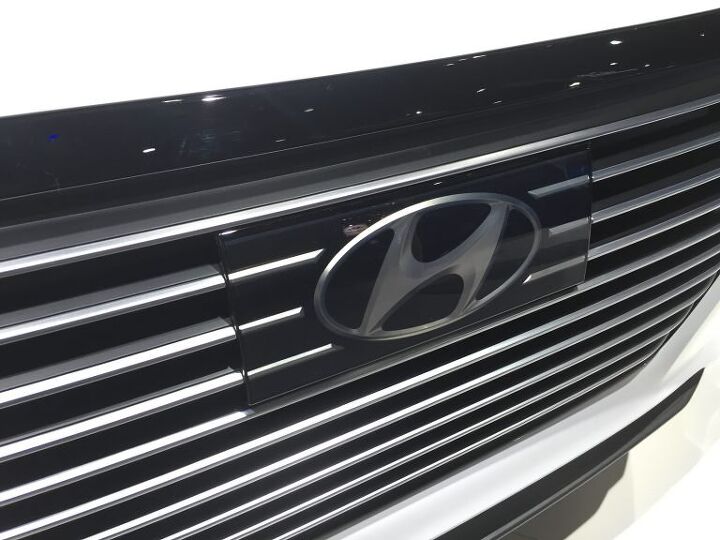

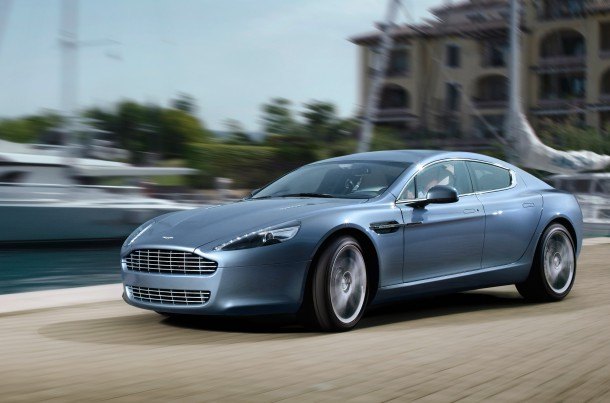
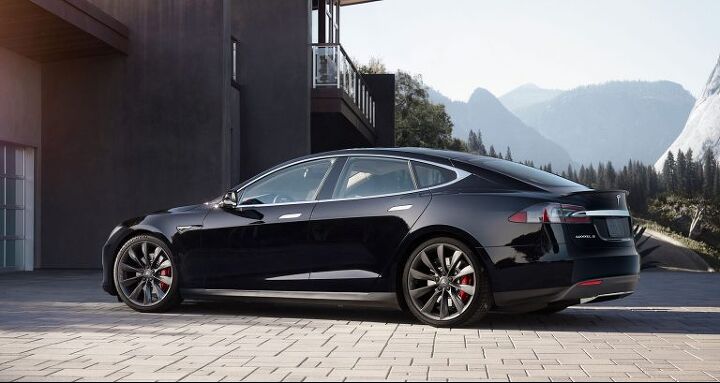



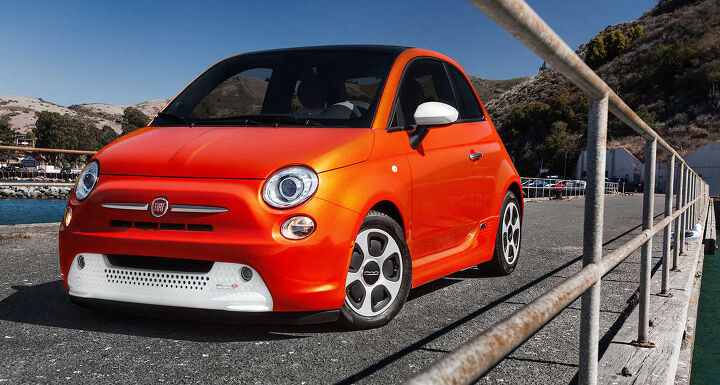
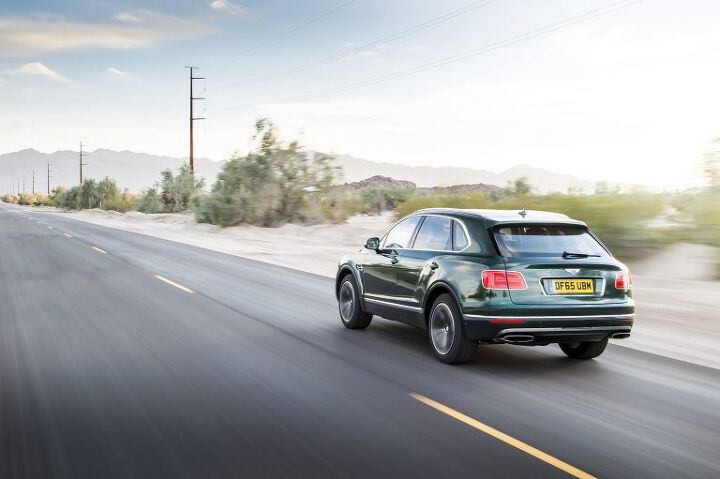












Recent Comments